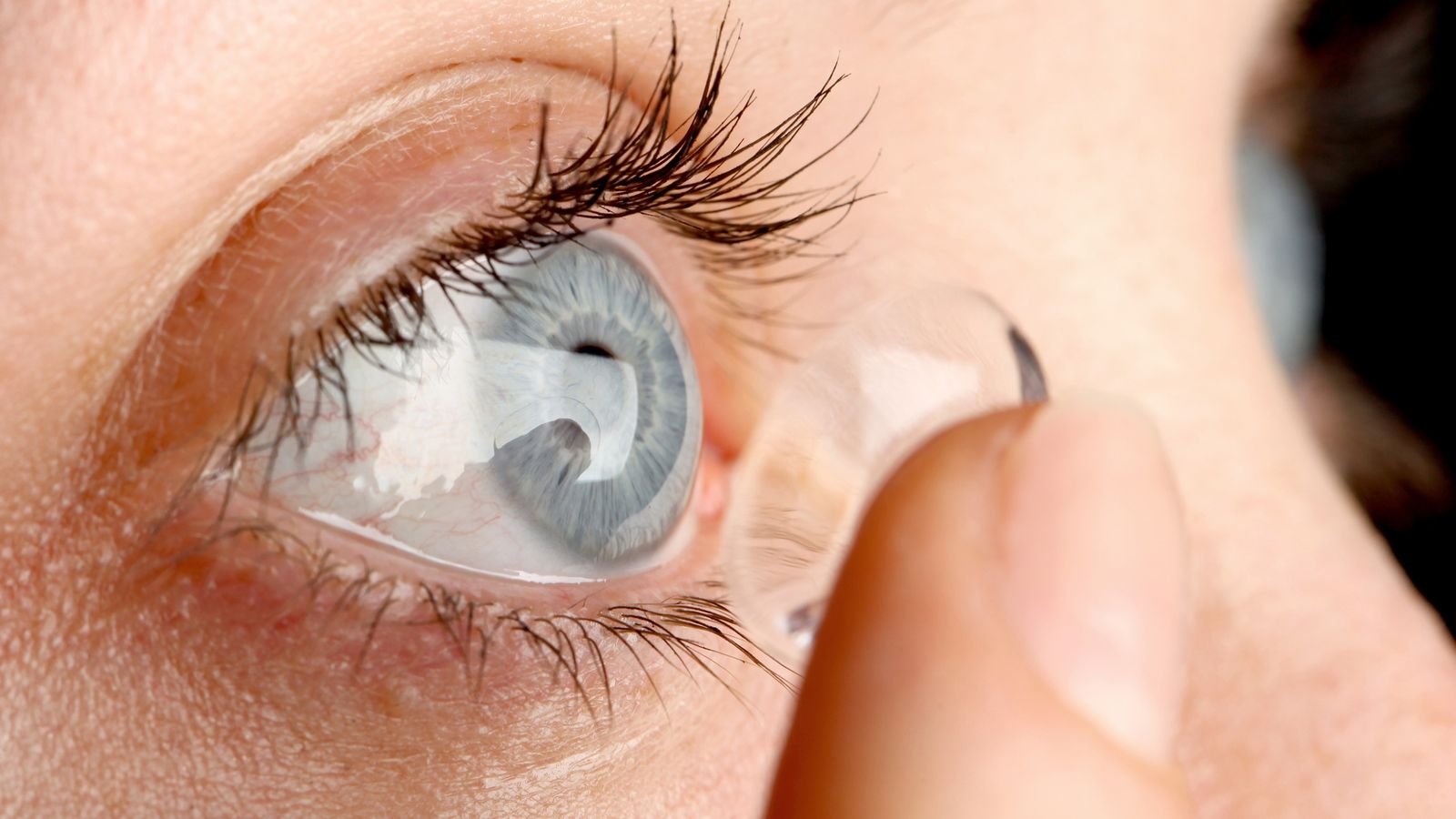The risk of contracting a rare sight-threatening eye infection increases almost four times for reusable contact lens users compared with those wearing daily disposables, according to new research.
Acanthamoeba keratitis (AK) is a type of corneal infection, and is a condition that results in inflammation of the cornea – the eye’s clear protective outer layer.
The study – led by UCL Institute of Ophthalmology and Moorfields Eye Hospital NHS Foundation Trust – identified several factors that increased the risk of AK, including reusing lenses or wearing them overnight or in the shower.
More than 200 of the hospital’s patients completed a survey, including 83 people with AK and 122 who attended eyecare clinics with other conditions.
Researchers found people who wore reusable soft contact lenses – such as monthlies – had 3.8 times the odds of developing AK, compared with people who wore daily disposable lenses.
Showering with lenses increased the odds of AK by 3.3 times, while wearing lenses overnight increased the odds by 3.9 times.
Researchers estimate 30-62% of cases of the condition in the UK, and potentially in many other countries, could be prevented if people switched from reusable to daily disposable lenses.
Mini-budget live: Kwarteng announcing tax cuts – with expected cuts to stamp duty and corporation tax
Demeaned, berated and fired: Fresh evidence of toxic bullying culture in parliament emerges
Interest rate raised by half a point to 2.25%, the highest level since 2008
They have suggested people should avoid wearing their lenses while swimming, or in the shower, and that packaging should include “no water” stickers.
While loss of sight from the infection is uncommon, Acanthamoeba, although a rare cause, is one of the most severe, and is responsible for around half of those contact lens users who develop sight loss after keratitis.
About 90% of AK cases are associated with avoidable risks although the infection remains rare, affecting fewer than one in 20,000 contact lens wearers per year in the UK.
The most severely affected patients – a quarter of the total – end up with less than 25% of vision or become blind.
Overall, 25% of people affected require corneal transplants to treat the disease or restore vision, the study suggests.
Lead author Professor John Dart said: “In recent years we have seen an increase of Acanthamoeba keratitis in the UK and Europe, and while the infection is still rare, it is preventable and warrants a public health response.
“Contact lenses are generally very safe but are associated with a small risk of microbial keratitis, most commonly caused by bacteria, and which is the only sight-threatening complication of their use.
“Given that an estimated 300 million people across the globe wear contact lenses, it is important that people know how to minimise their risks for developing keratitis.”
The study, published in Ophthalmology, was funded by Fight for Sight, the NIHR Moorfields Biomedical Research Centre and Moorfields Eye Charity.






